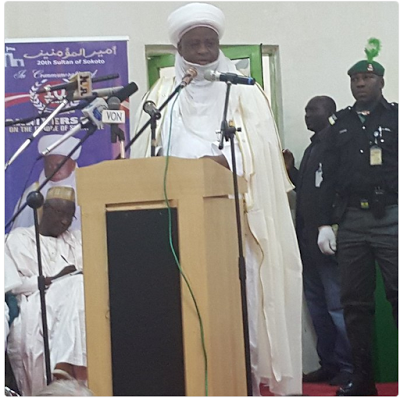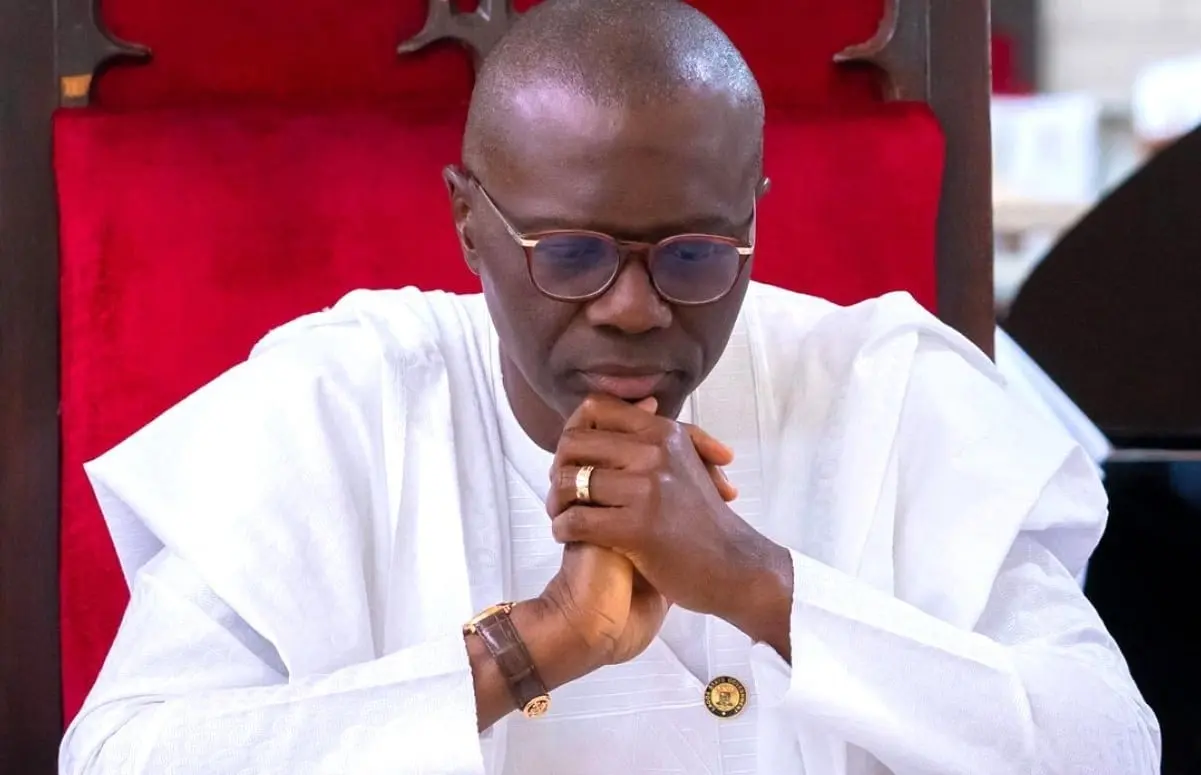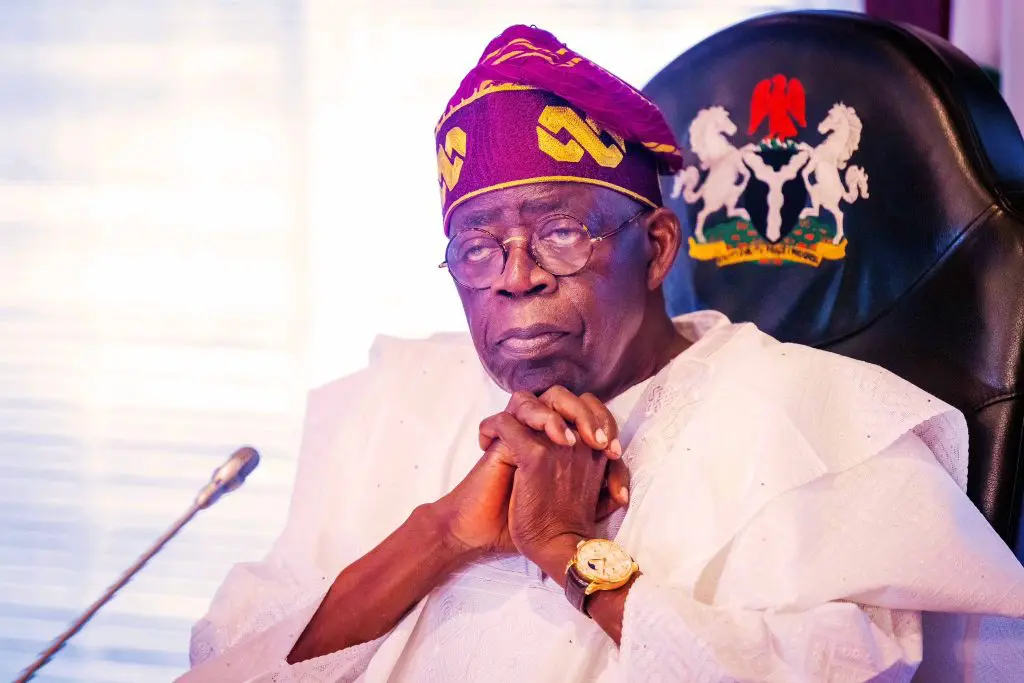Sultan at 10: Nigeria’s most influential traditional, religious leader celebrated

By Kemi Kasumu
“(He is) the Lord of the two easts (places of sunrise during early summer and early winter) and the Lord of the two wests (places of sunset during early summer and early winter). Then which of the Blessings of your Lord will you both (jinn and men) deny?” (Qur’an 17 and 18). Surely there is none of the blessings of his Lord that Alhaji Dr. General Muhammad Sa’ad Abubakar III, mni, CFR, would deny as it becomes obvious that he, himself, is indeed a blessing not only to his nation of birth, Nigeria, but also, more extensively, the world where just recently he has been rated the world’s 22nd most influential Muslim coming next to President Muhammadu Buhari, another Nigerian rated 17th.
Why would he not consider himself a blessing to the nation and the world, many have asked, when it is in his own reign the world and Nigeria have noticeably enjoyed a traditional and Muslim leadership that has successfully, and consistently too, blended the entire peoples together in his constancy in peace and unity advocacy?
Celebrating him at 10 on the throne, the Sultanate Council of Sokoto and the Magajin Garin Sokoto made arrangements for a resounding weeklong event to appreciate the king-son-of-king’s immense contributions to the peace, unity and development of Sokoto State, Nigeria and global community in general and the event was stretched between Wednesday November 2 through Saturday November 5.
In the light of this, the event was kick-started with a press briefing where a Senior Counselor in the Sultanate Council, Alhaji Hassan Danbaba, told journalists that the Emir of Kano and Etsu Nupe were expected to send over 500 horses, while 700 other horses were expected from the Emir of Argungu. He also shared details on other arrangements, adding that new traditional title holders would be turbaned by the Sultan.
Danbaba went to pay his compliments to the Sultan, who he described as being very committed to unity and the cause of humanity. “One of the most tremendous achievements is unity of Muslim Ummah and Nigeria at large,” he added.
The event, according to him, was set to begin with a dinner on Wednesday, November 2nd, followed by a symposium on the Sultanate’s contributions to politics, economy, others on Thursday, November 3, 2016. Special prayers for peace and unity was also planned to hold at the Sultan Bello Mosque, Sokoto, on Friday, November 4th, while the grand finale, slated for November 5th, was said to have a grand durbar, featuring thousands of horse riders with President Muhammadu Buhari and other notable guests were said to attend Saturday activities.
All the activities went on as planned with Vice President Yemi Osinbajo postponing other very important national assignments to ensure personal presence at the International Symposium on Sokoto Caliphate which he declared open on Thursday and President Muhammadu Buhari, himself, finding his way to Sokoto to personally lead the Mini Durbar in honour for the former battalion commander of the Nigerian Army, Sa’ad Abubakar, who is now Nigeria’s most powerful traditional ruler. Along with Buhari on the Saturday event were Senate President Bukola Saraki, Speaker of the House of Representatives Yakubu Dogara, former President Olusegun Obasanjo, former Vice President Atiku Abubakar, Governors Rochas Okorocha (Imo), Aminu Waziri Tambuwal (Sokoto and chief host) and very many other governors and first class monarchs from across the country.
Before declaring the Thursday symposium open, the vice president described Sultan Muhammad Sa’ad Abubakar III as worthy scion of the founding fathers of Sokoto Caliphate. He said Sokoto Caliphate was founded on honesty.
“Ten years into your royal sojourn, you are in good standing with your people,” Osinbajo noted even as he observed that, “The Sokoto Caliphate was founded over 200 years ago on the sterling principles of honesty, piety, good governance and truthfulness, among others.”
Vice President Osinbajo noted that Uthman Dan Fodio described a corrupt leader as a monkey meaning, according to him, that the corruption being fought by President Muhammadu Buhari administration today was long started by the founding father of Sokoto Caliphate that Sheikh Uthman Dan Fodio was.
Earlier at his time to speak, Sultan Sa’ad Abubakar was greeted with a heavy military band sound that he had to pass a joke, “This compliment is done for Generals.” He however quickly acknowledged the fact of such compliment as an appreciation of his 31 years in the service of the Nigerian Army. Muhammad Sa’ad Abubakar III stepped out of the Nigerian Army as Brigadier General into the waiting high seat of Sultanate royalty in 2006. “Thank you,” he said. While the whole hall in the Sokoto State Polytechnic premises of the symposium was still engulfed with ovations resulting from the royal joke, the Sarikin Mu’mineen of Nigeria quickly settled down for another point of call. He said anyone arrested for corruption should answer his name. Even as he saw the 10th years on the throne being celebrated as an occasion for him to give report of his stewardship, which he said included to educate people and work on achieving peace and unity among traditional rulers and other Nigerians of diverse religious and ethnic backgrounds. He said, “We have reached to all Nigerians and today all Nigerian people have reached out to us,” meaning that in ten years, the nation’s number king had actually delivered.
He went on by attributing the slow pace of development in Nigeria to misplaced priorities by political leaders. The Sultan said Nigerians must muster courage to question their political leaders on how they spend state resources, and make input to policy issues that involves their wellbeing. He said that it was only when citizens began to ask questions that governors and other leaders would sit up and begin to take the people seriously.
According to him, it is funny when people talk of restructuring. “When I hear people talk of restructuring I just laugh. Nigeria has long been well structured. The best way to move is for individual region to develop itself. Before we can restructure, let us first restructure our minds and acts. No matter what restructuring you do, with bad leaders in place, it won’t work.
“We must come together as good people to fight the evils in our midst. We must work to have a peaceful society and we must work to have development.
“We want to call on our leaders to please check themselves, especially the governors.
“I want to be blunt here. Why should a governor build a N30 billion airport when he has no money to pay salaries?”
He expressed regret that most times, Nigerian leaders had misplaced priorities, putting up projects that were of no benefit to the masses.
The Sultan advised that instead of duplicating projects like airports around the states, resources should be diverted to meet other cogent needs that would be of more use to the masses.
“There is need to begin to listen to the cry of the common man, to understand their needs rather than just carrying out projects.
“Of what use is it to be building airports worth billions of naira when the roads that the common man travels are bad? Instead of having an airport here in Birnin Kebbi that hardly sees one flight in one year, and then you have an airport in Dutse that only lifts pilgrims; Then you have an airport in Kaduna in Bauchi and Gombe and another one in Ekiti, in Makurdi and so on, while the roads which the common man uses for his day to day activities are so bad.
“You can imagine if you are travelling from Minna to Abuja, how many hours it will take you and from Lokoja to Okene down to Akure due to bad roads.”
Abubakar said these were the things political leaders needed to check and talk to themselves about adding that “if you don’t say the truth you can’t have progress.”
He said that the common man, in reality, has no food, no money among others and further urged Nigerians to stop hiding behind religion, politics and tribal affiliations to perpetuate crime.
He admonished the people to learn to call a criminal a criminal, regardless of affiliation and come together as good people to fight the evil ones among them, for development to workout.
“People hide under politics to say or do certain things that are totally against the security of the state. If the person is arrested, the next thing you hear is that it is because he does not belong to the ruling party; what is bad is bad. Whether he is a Muslim or Christian or APC or PDP, remove all these and let him answer his name, a criminal, you have stolen government money.
“But once we start using tribe among others to claim right, it is not good. We must all rise up and help government to get the money back.”
Abubakar urged the Federal Government to convene a national security summit of all stakeholders, including traditional and religious leaders, to deliberate on security issues; from militancy to Boko Haram to kidnapping.
He then appealed to politicians to forget sentiments when elected into office adding that whoever was elected into office becomes leader of all regardless of party or other affiliations.
The host governor of the events, Alhaji Aminu Waziri Tambuwwal of Sokoto State was happy that all that needed to take from the Sultan’s several words of advice on progress and development particularly security including the Vice President Yemi Osinbajo were physically present. He then urged everyone to be guided by the Sariki’s counsel.
President-General, League of Imams and Alfas South West, Edo and Delta, Sheikh Bello Kewulere gave the closing following a vote of thanks by the organizing chairman, Etsu Nupe Alhaji Yahyah Abubakar.
The Sultan’s two deputy president-generals of the Nigerian Supreme Council for Islamic Affairs (NSCIA), Shehu of Borno His Royal Highness Alhaji Abubakar Ibn Umar Garbai El-Kanemi (North) and Alhaji Sakariyau Babalola (South) were visibly present at all the events to do the leader of leaders a big honour on his day.
Sultan has worked for unity of Nigeria – Okorocha
Many great people all over the country and beyond have been eulogising the enigmatic personality that Sultan Sa’ad Abubakar III is severally described to be. Among them was Governor Rochas Okorocha, who sounded his commendation of the sitting Head of the Sokoto Caliphate from far away Imo State, where he said that His Eminence Alhaji Muhammad Sa’ad Abubakar III had relentlessly worked for the unity of Nigeria. Okorocha said, “The story of the unity of this great nation will not be complete without the noble name of the Sultan being prominently mentioned. He has diligently preached peace among Nigerians and religiously pursued the unity of this country.”
“As the Sultan celebrates this legendary event, the prayer of Nigerians of goodwill should be that the Almighty God would continue to keep him and grant him more inspiring anniversaries in the years ahead,” Okorocha said, adding by also commending the people of Sokoto State, for their unflinching support to their Sultan and prayed that such support would not wither.
Sultan brings Muslims close to Christians – MURIC
In his own commendation, the Muslim Rights Concern (MURIC), in a statement signed by his Director, Prof. Ishaq Akintola, said, “We affirm that Nigerian Muslims only began to raise their heads with pride after the current Sultan came on board. Sultan Muhammad Sa‘ad Abubakar III gave Nigerian Muslims purposeful, mature, dynamic and responsible leadership. He shunned armchair leadership and became visible in all parts of the country. We marvel at his managerial skill with which he has mobilized Muslims from all sectors.
“A completely detribalized Nigerian, a true bridge-builder and a man of peace, he brought the Muslim Ummah closer to their Christian neighbours. Leading by example, he taught us love, forgiveness, and tolerance. A patriot primus inter pareil, he laid special emphasis on the need for peaceful coexistence in the past ten years of selfless service to his country.
“There is no gainsaying the fact that the current Sultan is a great asset to the people of Sokoto, the North and Nigeria as a whole. We therefore charge the Sokoto State Government to give special recognition and a befitting status to Sultan Muhammad Sa‘ad Abubakar III. This can be done by repealing Section 6 Cap 26 of the Laws of Northern Nigeria which empowers the state governor to depose any ruling Sultan.
Military career
Up until February 2006, the Sultan was Nigeria’s Defence Attaché to Pakistan, with concurrent accreditation to Iran, Iraq, Saudi Arabia and Afghanistan, which suggests his intimate knowledge of some of the world’s most intricate crisis points.
Brigadier General Sa’ad Abubakar, or “Sada”, as he was called in Sokoto, is however not a man of crisis. As a matter of fact, he spent many of his 31 years in the military as a peacekeeper.
He commanded a battalion of African peacekeepers in Chad during the early 1980s as part of the Organisation of African Unity’s force and was military liaison officer for the West African regional body Ecowas in the mid 1990s.
Later he served in ECOWAS’ peacekeeping force when it intervened in Sierra Leone’s bloody civil war, leading a tank battalion.
He had done extensive military training overseas including in India, Canada and headed a presidential security unit of the Armoured Corps that guarded then military President, General Ibrahim Babangida (Rtd) in late 1980s.
The former Army footballer’s appointment as 20th Sultan was warmly received in Sokoto ten years ago because he is the son of the late Sultan Siddiq Abubakar III, who reigned from 1938 to 1988 and acquired near-mythical stature in Sokoto and was knighted by the English monarch Elizabeth II.
Sir Abubakar’s family is highly popular with the ordinary people in Sokoto, who will accept almost anyone from that family, but may not readily accept a new man from some of the rival ruling houses.
A close military associate of his had once described Sultan Muhammad Sa’ad Abubakar as “strong willed, blunt, a very good soldier, a strict disciplinarian, and a man who holds strong opinions on all issues.”
Many of the people who were waiting to see whether those qualities that stood him very well in the military would serve him equally well in his calling of royalty, must have now seen, ten years after that, not only they but many great people from far and wide converged in Sokoto to celebrate the man they have all come to agree is a pragmatic enigmatic creature. They say Sultan have delivered at 10.









